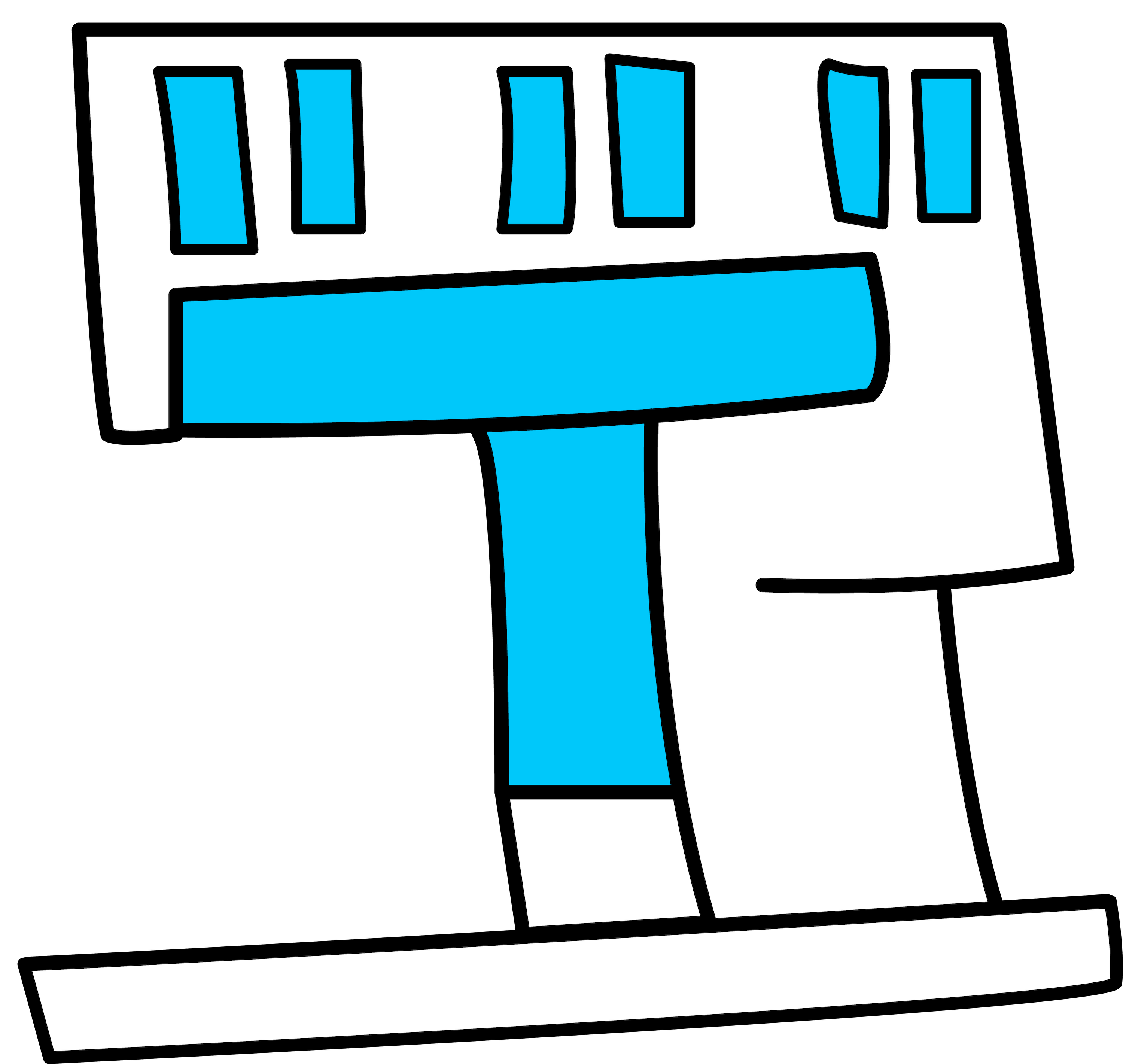ayauhcalli (Mdz64r)
This iconographic element for ayauhcalli (perhaps "fog house") shows a building in profile open to the viewer's left. Its T-shaped beams in the doorway are painted turquoise. The building itself, very reminiscent of a calli, is white. Along the top, horizontal plane of the building, there are three pairs of vertical dashes, seemingly representing mist or fog (ayauhtli) and these are also painted turquoise (the color of water). Another possibility, perhaps a reinforcement of the reading, is that these vertical dashes represent the "hua" syllable from huahuana (to make stripes).
Stephanie Wood
The gloss not only explains that this is an "ayauhcalli," or fog-house, but describes it as a mezquita, which was the Spaniards' early term for a teocalli, religious house, drawing from their experience with the religious temples of the Moors in the Reconquest of Iberia. The term ayauhcalli combines ayauhtli (fog) with calli (house or building). The T-shaped entrance to the building, which usually has terracotta-colored wooden beams, here has turquoise beams. The choice of color certainly seems to relate to water, again, and therefore to preciosity and a religious significance. The markings on the top of the building are also the same turquoise-blue, like water. somewhat reminiscent of mist, which is akin to rain quiyahuitl (also spelled quiahuitl). Vertical turquoise-blue stripes appeared on the facade of the left-most temple of the twin temples of the Templo Mayor of Tenochtitlan, linking rain with reverence for Tlaloc. As Ian Mursell points out (Mexicolore), the Tlaloc side is usually on the left in depictions of the twin pyramids of Tenochtitlan, despite the error he spotted. Another error is found in this collection (see teocalli, TR36v, below).
Stephanie Wood
mezquita . non
brada ayauhcali.
mezquita nombrada ayauhcalli
Stephanie Wood
c. 1541, or by 1553 at the latest
Stephanie Wood, Xitlali Torres

Ellis Shing Nobles
temples, templos, houses, buildings, architecture, religious structures, religious buildings, religious festivals, casas, edificios, arquitectura, santuarios, calendario, fiestas, double-strike sign, double-stroke sign
a(tl), water, https://nahuatl.wired-humanities.org/content/atl
ayauh(tli), fog, mist, https://nahuatl.wired-humanities.org/content/ayauhtli
ayahui(tl), fog, mist, cloud, https://nahuatl.wired-humanities.org/content/ayahuitl
ayahui, to be foggy, https://nahuatl.wired-humanities.org/content/ayahui
huahuana, to make stripes, https://nahuatl.wired-humanities.org/content/huahuana
quiyahui(tl), rain, https://nahuatl.wired-humanities.org/content/quiyahuitl
cal(li), house or building, https://nahuatl.wired-humanities.org/content/calli
teocal(li), temple or church, https://nahuatl.wired-humanities.org/content/teocalli
la casa de la niebla
Stephanie Wood
Codex Mendoza, folio 64 recto, https://digital.bodleian.ox.ac.uk/objects/2fea788e-2aa2-4f08-b6d9-648c00..., image 138 of 188.
Original manuscript is held by the Bodleian Libraries, University of Oxford, MS. Arch. Selden. A. 1; used here with the UK Creative Commons, “Attribution-NonCommercial-ShareAlike 3.0 License” (CC-BY-NC-SA 3.0)






